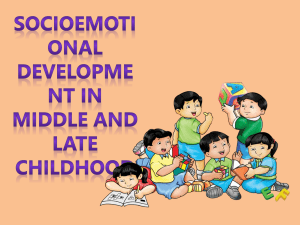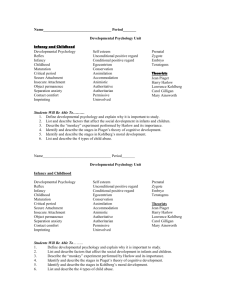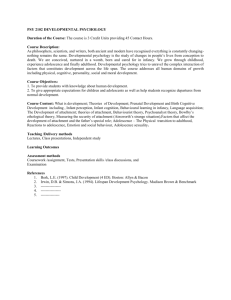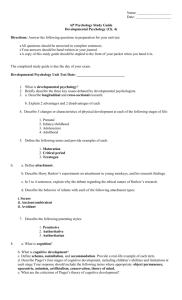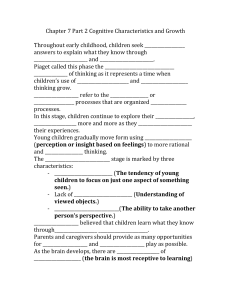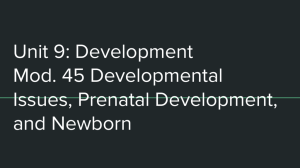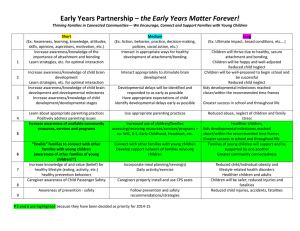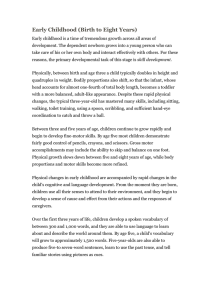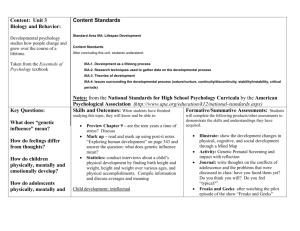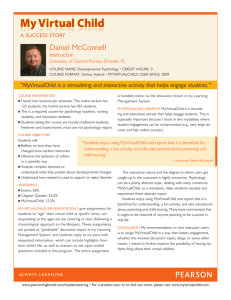Study Guide
advertisement
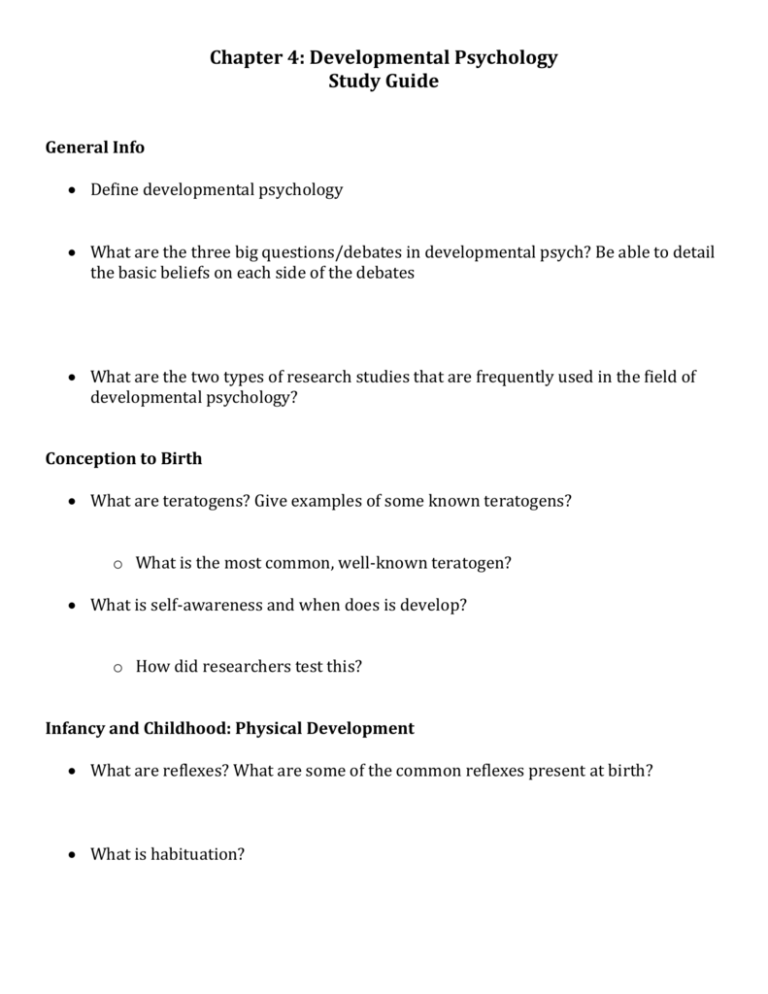
Chapter 4: Developmental Psychology Study Guide General Info Define developmental psychology What are the three big questions/debates in developmental psych? Be able to detail the basic beliefs on each side of the debates What are the two types of research studies that are frequently used in the field of developmental psychology? Conception to Birth What are teratogens? Give examples of some known teratogens? o What is the most common, well-known teratogen? What is self-awareness and when does is develop? o How did researchers test this? Infancy and Childhood: Physical Development What are reflexes? What are some of the common reflexes present at birth? What is habituation? Infancy and Childhood: Cognitive Development What is a schema? o Define accommodation o Define assimilation Understand Piaget’s stages of cognitive development (know them in order) o Sensorimotor Stage What is object permanence? o Preoperational Stage What is egocentrism and how does it affect a child’s perception of other people’s perspective What is theory of mind? What developmental disorder is it associated with? What is conservation? o Concrete Operational Stage o Formal Operational Stage What type of thinking is finally developed at this stage? Infancy and Childhood: Social Development What is attachment? o What are the two ways in which a child can become attached to his or her caregiver? o What types of parenting behaviors are associated with each type of attachment? o How is attachment connected to the cycle of abuse? Define imprinting and know when it occurs? What are the consequences of attachment that is disrupted by abusive or threatening situations? o How is the brain affected? Parenting What are Diana Baumrind’s three parenting styles and what are the characteristics of each? Which is the most successful in raising well-adjusted, competent, successful children? Adolescence: Physical and Cognitive Development What is maturation? What is it largely influenced by? What are primary and secondary sex characteristics? What is menarche and when does it occur o What are the current trends in onset of menarche? Adolescence: Social Development and Emerging Adulthood Know the levels of Kohlberg’s Theory of Moral Development o Preconventional Level What influences guide moral decisions? o Conventional Level o Postconventional What type of culture promotes this level of moral reasoning? On what are moral decisions based during each of the stages of this level? How does Haidt’s theory of moral reasoning differ from Kohlberg’s? How does a teen develop his or her identity? What is role confusion? Know Erikson’s theory and understand the conflict to be resolved at each stage Stage Conflict Adulthood How is romantic love influenced by early childhood development? What do twin studies reveal about the nature of romantic love? What are current trends in marriage demographics? What factors contribute to a successful marriage? What is menopause? What is dementia? What are some of its causes? How is our emotional stability affected by aging? Understand the difference between fluid and crystalized intelligence, and know how aging affects each type

